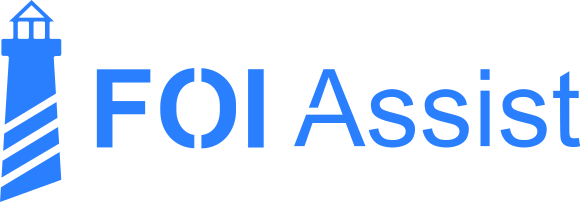
It now looks like last week’s cover article in The Globe and Mail was just an opening salvo. As a footnote to that article, the Globe posted a call for tips and suggestions from anyone involved in “Canada’s broken freedom-of-information regimes”:
Help us investigate Canada’s broken freedom-of-information regimes. We’re looking to speak with people who use and interact with the system at all levels of government. Are you a current or former FOI analyst? A public servant? A citizen, academic, researcher or advocate who has filed requests? Are you a current or former appeals adjudicator? A lawyer with experience in this area of law? We want to talk to you. You can get in touch with us at secretcanada@globeandmail.com.
Ottawa spent $90-million in 2021 on strained access-to-information program
The Globe’s own “Morning Update” expanded on this, beginning with the following:
Secret Canada: Over the coming months, The Globe and Mail will dig into problems at the federal, provincial, territorial and municipal levels and explore solutions to the country’s culture of secrecy.
Morning Update: Ottawa spent $90-million in 2021 on broken freedom-of-information system
So it’s clear that this will not be a one-off article; Freedom of Information programs at every level of government can expect significantly increased scrutiny from The Globe in the coming months.
And now, the Toronto Star has joined the fray:

In his Toronto Star article, Matt Elliott notes that as of the 2021 reporting year, the City of Toronto was only able to respond to FOI requests within the basic 30-day deadline 55 percent of the time. Even taking “extended compliance” into account, where the City of Toronto issues an extension to the 30-day deadline in compliance with the Municipal Freedom of Information and Protection of Privacy Act, “the city still only managed to hit their extended due date for FOI requests 62 per cent of the time across 2,860 completed requests last year”. I recommend reading the full article for insights into how the City of Toronto compares to other Ontario municipalities and concerns over how the City of Toronto’s FOI performance has been trending over the long term.
(I applaud Mr. Elliott for his unusually sophisticated analysis of the Information and Privacy Commissioner of Ontario’s Year-End Statistical Reports. He correctly drew a distinction between “extended compliance” requests, which were completed in accordance with a validly issued time extension, and “non-compliant” requests, where the City failed to meet its own extended deadline. Mr. Elliott noted that even in this latter category, the City of Toronto fared poorly when compared to average municipal performance in Ontario.)
It’s clear that Canada’s FOI programs at every level of government will be facing additional media scrutiny in the coming months. The relatively hands-off, sympathetic approach that journalists may have been taking during the past two and a half years of COVID closures and work-from-home directives is officially over.
Talking Points
In an upcoming article, I will be addressing the topic of FOI professionals speaking to journalists. (Unlike most employees, due to the nature of an FOI professional’s work, this can’t be avoided completely.)
In the meantime, be prepared for increased media attention on FOI programs in the coming weeks and months. If your institution’s FOI performance fell during COVID, you may have valid, COVID-related reasons for 2020, 2021 and even 2022, but what steps are you taking to ensure the performance of your FOI program is improved in 2023 and beyond? And if your institution is asked by a journalist how you intend to achieve better results going forward, what will be your answer?
How can institutions improve?
If you are at a provincial or municipal institution in Ontario, the best way to improve the performance of your institution’s FOI program is to use the FOI Assist software. The FOI Assist software guides you through the process under FIPPA or MFIPPA and significantly reduces the time your institution takes to process an FOI request. The FOI Assist software runs “in the cloud” and is accessed via your web browser, just like LinkedIn or Facebook. And it has a modern, easy-to-use interface; a 30-minute videoconference is all it takes to get your institution up and running.
For more information, read the release announcement, or better yet, book a demonstration to see for yourself how much of the FOI process the software can take care of for you.

Leave a comment